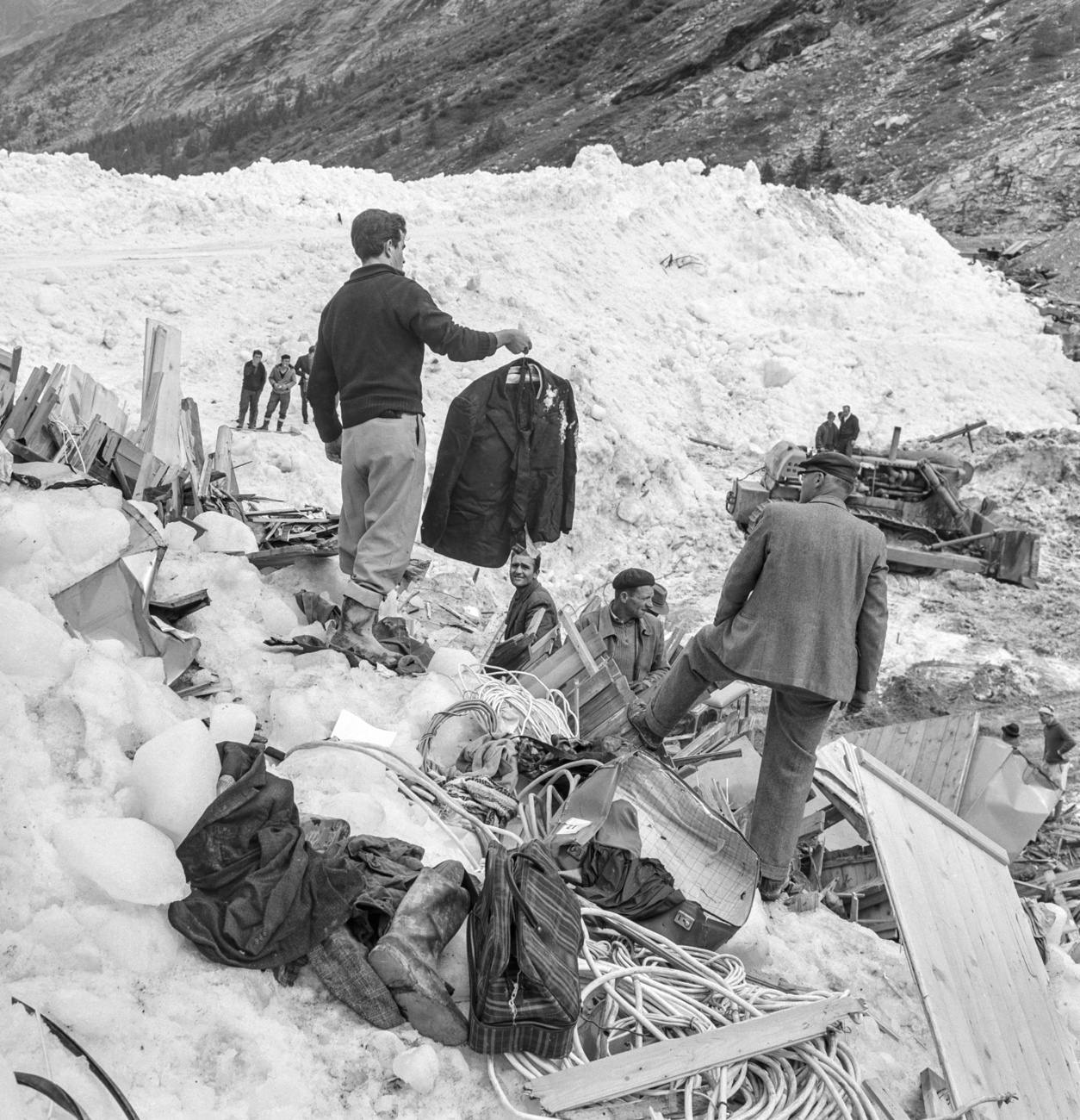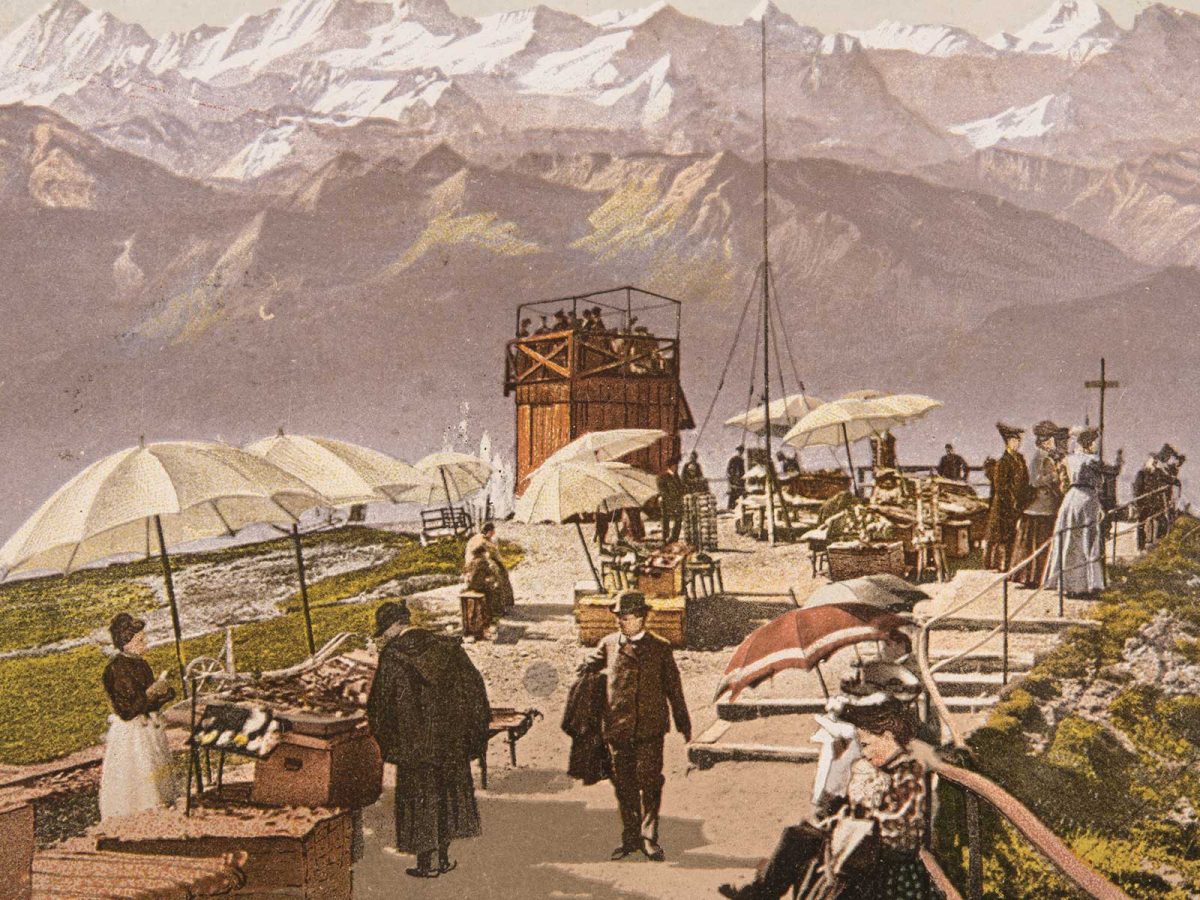

Switzerland Today
Dear Swiss abroad,
A Valais businessman who owns one of Switzerland's biggest underground springs wants to turn the Alpine water into gold. Investors from China are keen to get involved. But locals are fearful that their tap could be turned off.
Best regards,

The climate crisis is causing ever-greater struggles over water resources – even in Switzerland.
One of Switzerland’s biggest sources of drinking water can be found in Turtmann, canton Valais. The owner of the source, a private businessman, now wants to sell it.
Investors from China are among the interested parties, according to the municipality. The Chinese are keen to sell the water from the Swiss Alps around the world.
The people in Turtmann are worried, however. They must already save water in summer. What if Chinese investors get to decide what happens to the water from their mountains?
- The Chinese want to buy a large source of drinking water in Turtmann – reportExternal link in Blick
- ETH professor speaks of a potential deal worth millions – reportExternal link in Blick
- Torrid time predicted for Switzerland by 2060 – SWI swissinfo.ch article from 2018
More

This week it was confirmed: the Swiss bank Credit Suisse is “too big to fail”.
On Thursday it was announced that CreditSuisse would borrow up to CHF50 billion ($54 billion) from the Swiss National Bank (SNB) to bolster liquidity and reassureinvestors after its shares slumped massively on fears of contagion from a banking crisis in the United States.
Swiss and foreign media have slightly contrastingviews on the bank’s rescue by the SNB.
“When a bank announces at 2am local time that it is borrowing from the government, that is not a good sign,” wrote Robert Armstrong in the Financial Times newspaper.
Switzerland’s Tages-Anzeiger said it was a “good thing that the national bank intervened”. Experts still insist that the bank has enough capital and does not have a liquidity problem, it declared.
- Media: is the CHF50 bn Credit Suisse lifeline just a ‘sticking plaster’? – press review from March 17, 2023.
- Credit Suisse rescue – What does it mean for Switzerland? – an explainer
- Where did it all go wrong for Credit Suisse? – analysis by our finance expert Matthew Allen.

After three years, the project has finally crossed the finish line: the Swiss parliament has agreed to the overhaul of the occupational pension scheme.
This is the second pillar of Switzerland’s pensionsystem after the state pension plan, which consists of various insurance schemes such as the Old Age and Survivors’ Insurance (OASI), Disability Insurance, and Unemployment Insurance
The problem is that the population is gettingolder and pension funds must pay out more money for pensions than employers and employees have saved.
To correct this, parliament has now changed the so-called conversion rate – it will be lowered. This means that future retirees will receive lower pensions from their savings. But under the reform, occupational pensions will be balanced via compensatory measures.
The revision of the law is not final, however. The centre-left Social Democratic Party and trade unions have announced they will challenge the reform via a referendum. If they collect 50,000 signatures in 100 days, Swiss citizens could vote on the law revised by parliament.
- “Now it’s in the bag: Here’s how the pension scheme will change with the reform” – WatsonExternal link (German).
- Restructuring the pension system – SRF News ExplainerExternal link (German).
- BVG 21 – the compromise of the social partners – the proposal of the Swiss Federation of Trade Unions.External link (German/French)

The Covid-19 pandemic has had a major impact on the working environment of cross-border workers.
According to a 2022 taxagreement between Switzerland and France, cross-border commuters can now do up to 40% of their workremotely from home. Previously, the limit had been set at 25%.
The higher proportion of home office work means larger financiallosses for Switzerland. This is because work is taxed where it is performed physically.
But it is even more complex: French law stipulates that Swiss companies must levy a withholding tax on their French cross-border workers. And that, says one expert, is a criminal offence under Swiss law.
Although the pandemic has subsided, Switzerland’s neighbours are still having to deal with its consequences.
An estimated 370,000 cross-border workersExternal link are employed at Swiss-based firms but live in France (208,600), Italy (89,700), Germany (63,900) or Austria (8,600).
- The plight of cross-border commuters who work from home – report by Emilie Ridard (French and German)
- Cross-border workers also have to work from home – report by SRF and swissinfo.ch from December 2022. (German)
- Cross-border commuters from Italy in southern Switzerland – report from Leonardo Spagnoli from September 2020 (French, German, Italian and Russian).

In compliance with the JTI standards
More: SWI swissinfo.ch certified by the Journalism Trust Initiative





































